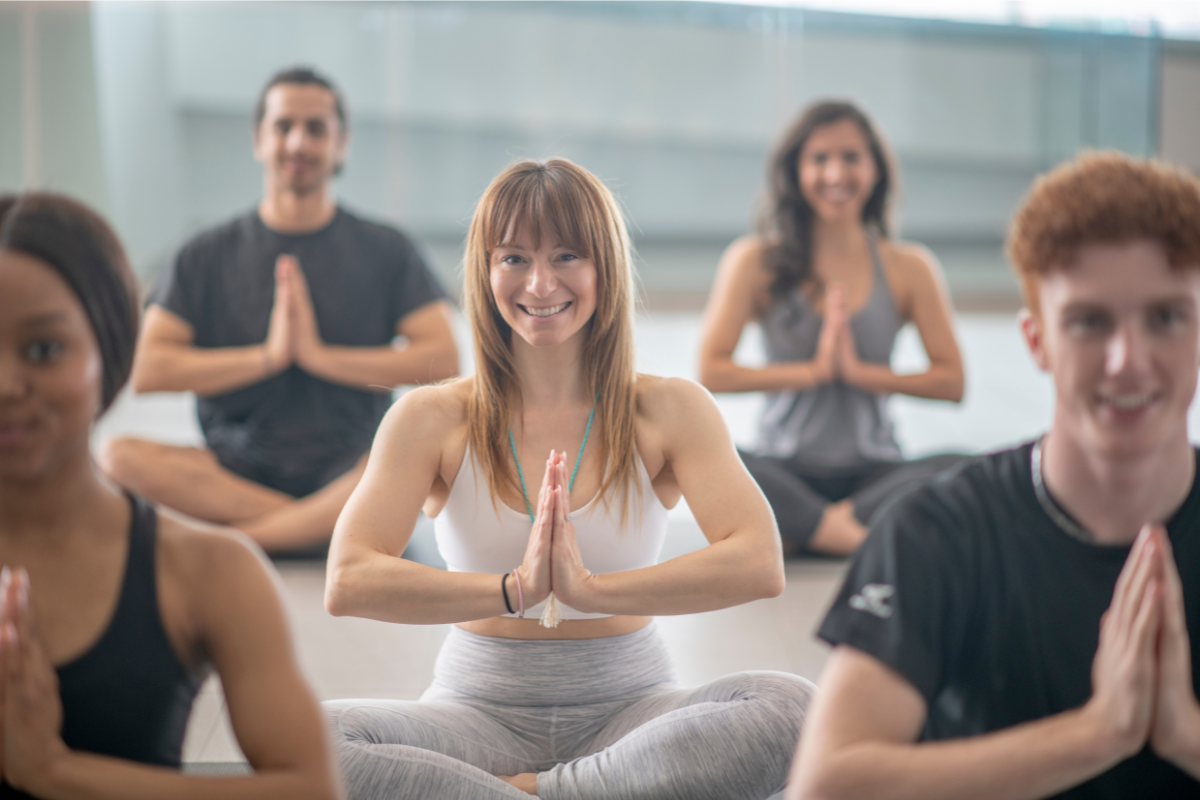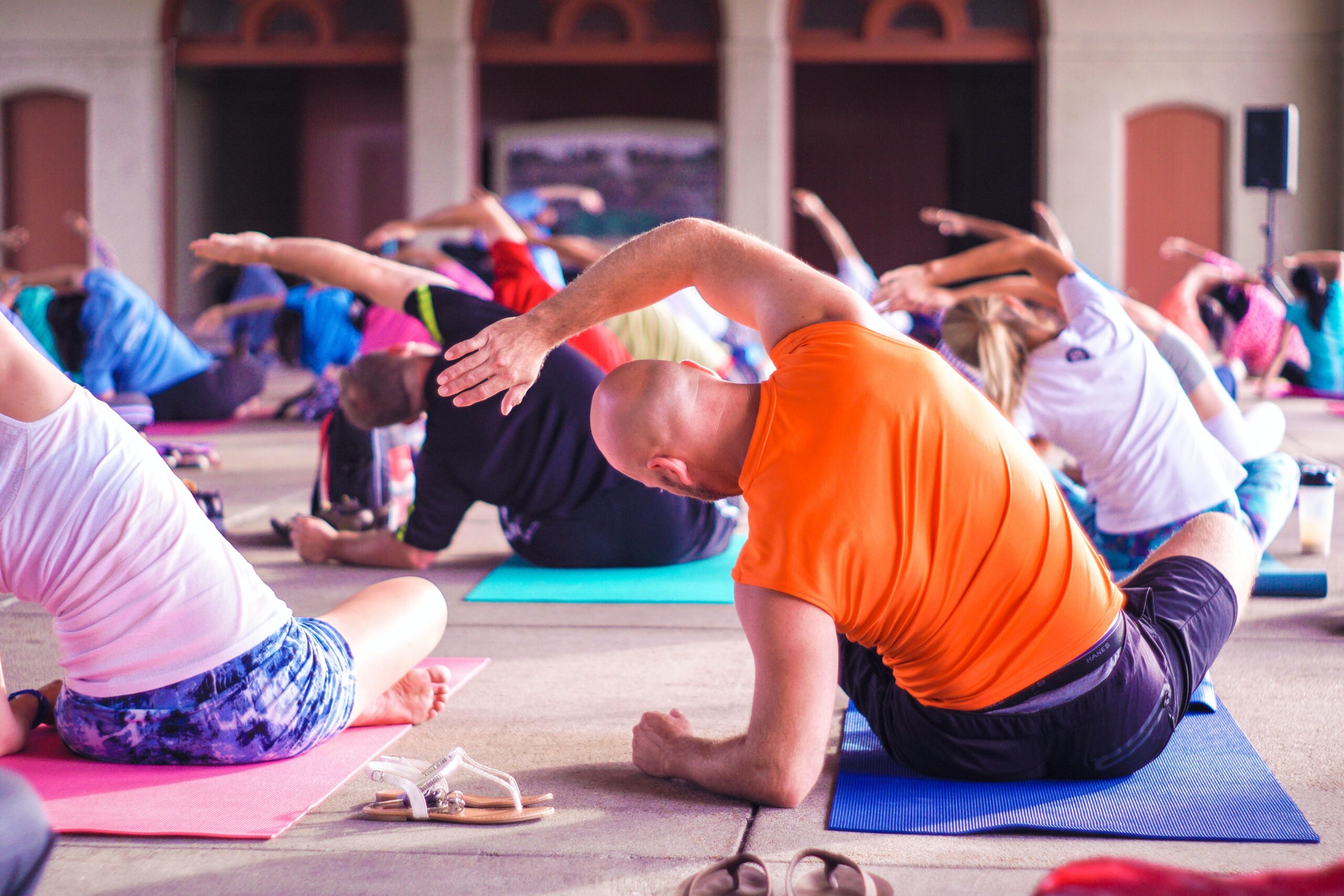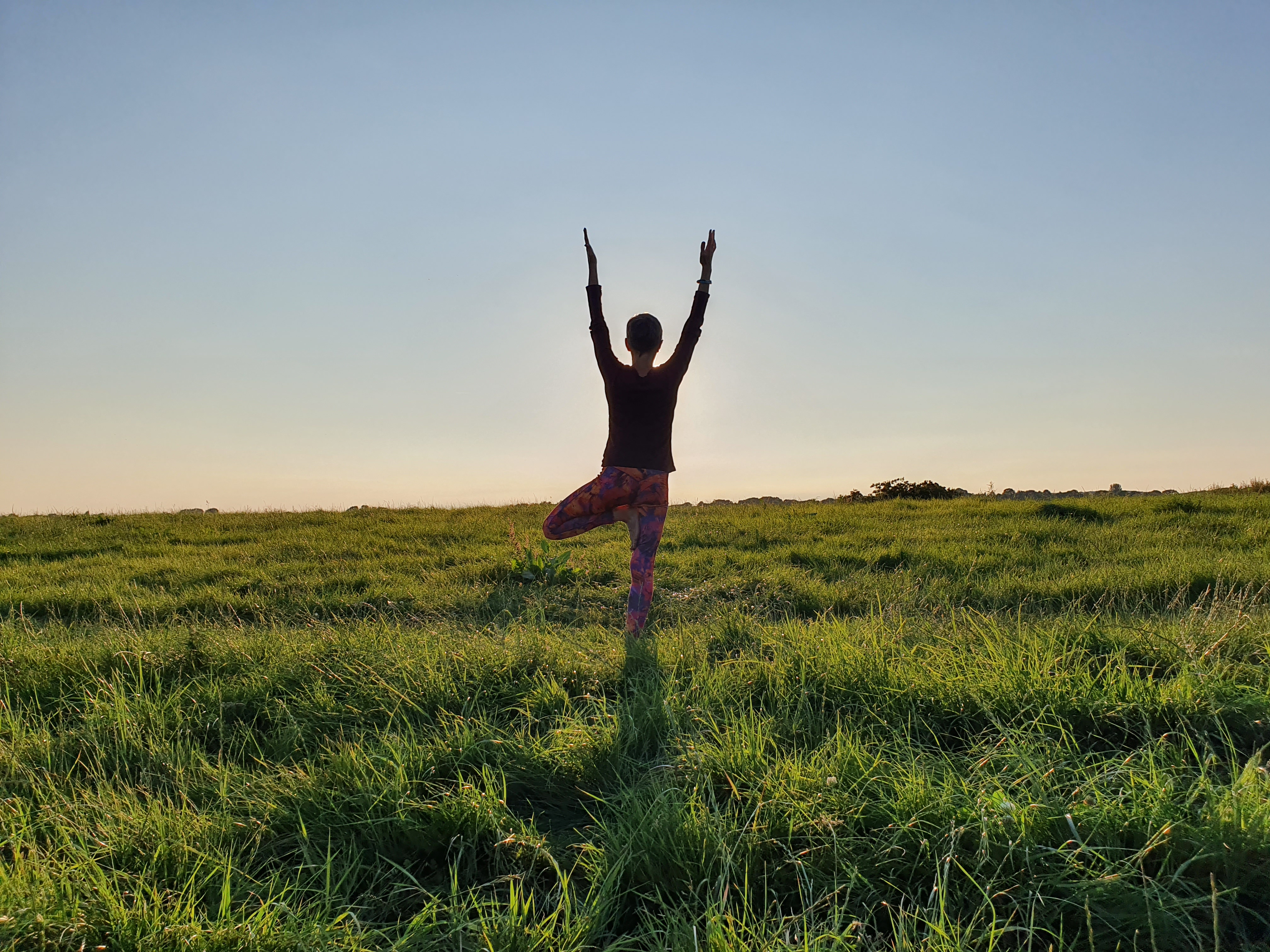I was in my mid-twenties when I first tried a yoga class at my local gym. Having never practised yoga at all before, I enjoyed the low-impact stretching and strengthening exercises; and at a time in my life when I was juggling a lot of roles and responsibilities, the part at the end of the class where we had a lie down felt like a lovely opportunity to rest and daydream for five minutes!
I returned to the class a few more times, but if I’m honest, from that experience, yoga didn’t really “stick” for me. I don’t think I ever really got over the imposter syndrome of feeling like everyone else in the class was in on some knowledge or secret that hadn’t been shared with me. There were times when I struggled to get my body to do whatever the yoga teacher was doing, or to keep up with the pace of a sequence of movements. I wouldn’t have described my experience of these classes then as negative – but I think I came to the conclusion that perhaps yoga wasn’t really for me.
Two decades later, something drew me back to yoga, and this time, my experience was different. I found a class where the teacher broke down and demystified poses, offering modifications and variations so I wasn’t left striving to move my body in ways that weren’t right for it. I started focussing more on my body and my practice, and less on what others were doing around me. With the encouragement of my teacher, I developed the confidence to work on whatever variation of a pose felt right and safe for my body.
As I returned to the class each week, I came to realise that yoga was not an exercise class where the goal was to get my body into certain positions. Rather, it was an ongoing practice of getting to know my body and working kindly with it – in ways that could profoundly impact not only my confidence in my body, but also my overall sense of wellbeing. I also realised that there was never a point I would get to where I knew all there was to know about yoga – that the point of yoga poses wasn’t to learn them, but to experience them, knowing the experience would be different each time.

Thanks to this experience, I not only developed the confidence to show up to any yoga class without that sense of imposter syndrome – I also developed an appetite for furthering my exploration of yoga poses, sequences and practices. This exploration continues to this day, each time I step on to my mat and explore – and my yoga practice, and wellbeing, is all the richer for it.
I wanted to share my experience with you so that you know you're not alone:
- If you've ever felt like an imposter in a yoga class
- If you've ever injured or made yourself uncomfortable in a yoga class as you've tried to get your body to do the same thing as others are doing with their bodies
- If in your current yoga practice you feel like you want to get to know a yoga pose better, or spend more time focussing on how the pose feels in your body
If any of the above rings true for you - you are not alone.
Better still, acknowledging your experience of any of the above opens you up to the opportunity of developing a yoga practice that is not only safe for your body, but also nurtures and supports your overall sense of wellbeing. And, paradoxically, as you focus more fully on your body, and developing your practice, you may find that your sense of connection with others around you increases - not because you're all making the same shapes with your different bodies, but because you're all sharing individual yet similar experiences, as fellow living, breathing human beings with bodies.
So if you've ever given yoga a try and decided it's not for you - give it another try. Try a different type of class, a different style of yoga, a different teacher. Try it until you find a practice that works for you.
And if you're already practicing yoga and are feeling the urge to explore aspects of your yoga practice further - give it a try. Try out a workshop, or a weekend retreat. Or just have a chat with your yoga teacher - I know I love nothing more than to geek out over yoga with my students!
Does this ring true for you? If it does, what steps could you take to find or develop a yoga practice that allows you to let go of imposter syndrome and striving, and enables you to explore yoga poses and practices wither greater awareness of and respect for your body? I'd love you to share your thoughts in the comments 🙂


Whether you’re at the very start of your yoga journey, or are already practising, check out these workshops coming up in November, where we’ll explore yoga in ways that will help you develop greater confidence in your body and enrich your practice.
Join me, and make imposter syndrome in your yoga practice and thing of of the past!